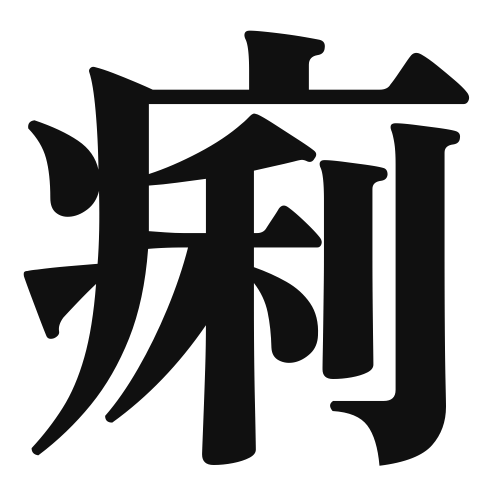1. Overview of Meaning
The kanji “痢” (ri) refers to dysentery, a type of intestinal infection that causes severe diarrhea with blood and mucus. It is often associated with gastrointestinal diseases and is a term used in medical contexts.
2. Formation and Radical
Formation of the Kanji: The kanji “痢” is a phonetic compound (形声文字) that combines the radical for “disease” (疒) with the phonetic component “里” (ri), which contributes to its pronunciation.
Radical: The radical of “痢” is 疒, which is related to illnesses and diseases.
3. Examples of Usage
Common Words and Phrases:
- 痢疾 (りしつ, rishitsu) – dysentery
- 急性痢疾 (きゅうせいりしつ, kyūsei rishitsu) – acute dysentery
Example Sentences in Daily Conversation:
- 「最近、痢疾が流行っているので、気をつけてください。」(Recently, dysentery has been spreading, so please be careful.)
- 「彼は痢疾にかかって、病院に行きました。」(He caught dysentery and went to the hospital.)
4. Synonyms and Antonyms
Similar Kanji:
- 下痢 (げり, geri) – diarrhea, which refers to loose or watery stools but does not necessarily imply blood or mucus.
Antonyms:
- 便秘 (べんぴ, benpi) – constipation, which is the opposite condition characterized by infrequent or difficult bowel movements.
5. Cultural and Historical Background
Relation to Japanese Culture: In Japan, dysentery has historically been a significant health concern, especially during times of war or natural disasters when sanitation may be compromised.
Proverbs and Idioms: There are no widely known proverbs specifically about “痢,” but discussions about health and hygiene often emphasize the importance of cleanliness to prevent such diseases.
